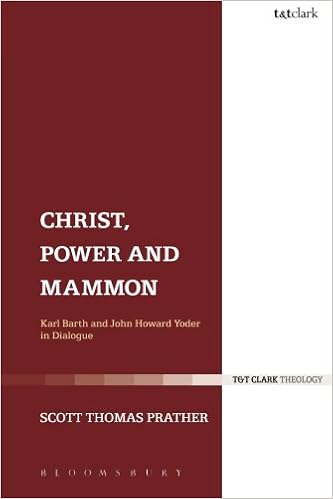It used to be that alongside books and articles one of the ways one would get one's ideas into print would be by publishing
pamphlets. Today, with the pervasiveness of blogs on one hand and a pejorative association with tracts on the other, one might think the pamphlet tradition difficult to revive. But if there is any merit to the complaints that academic writing is too inaccessible and popular writing is too careless, we might still see some value in the publication of shorter, thoughtful treatments of important topics by accomplished theologians and practitioners.

In Britain,
Grove Booklets seem like an attempt to offer just that. Describing themselves as 'fast moving explorations of Christian life and ministry,' they are arranged in ten series ranging from biblical studies to ethics to youth ministry. Two that I picked up in my search for shorter pre-reading assignments recently included
A Spirituality of Peacemaking and
Leadership Resilience in Conflict. But the one I am reviewing today is
Ian Paul's forthcoming next addition to the series, entitled
Evangelical Leadership: Challenges and Opportunities.
This 28-page booklet (
available here for £3.95) is divided into five short chapters, each of which ends with 'Questions for Reflection' that are intentionally personal, communal, and programmatic. The first chapter, 'Being a Leader', is the one I find most curious, but the remaining chapters show the relevance of the booklet for the church (of Britain) of today.
In chapter 1, 'Being a Leader', Ian Paul makes the simple (but very important) observation 'that "leadership" is not a very biblical word' - at least not as it is so often used today (3). What we ought to recall is that, if anything, the biblical witness borrows many models of leadership in order to encourage and enable a unique group dynamic of 'mutuality' in which authority is 'refracted' rather than concentrated in one place (4-5).
If we think we can avoid this concentration by simply rejecting authoritarian models of church we are deluded; if we think we can give no one the responsibilities and empowerments of leadership we are not helping ourselves either. So it is helpful in this chapter that Ian Paul clarifies the 'language of leadership' and points to a 'spirituality of leadership' which fits. I would personally like to have read more about this.
In chapter 2, 'Being Evangelical', we get the observation that evangelicals 'have been good at being a small, persecuted minority' or 'a dominant majority' but 'are not very good at is being a significant but not dominant voice' in the church (8). Today evangelicalism tends not to be separate and distinct but 'diverse' and 'diffuse' - which makes it difficult to pin down (9). Even David Bebbington's classic fourfold outline (conversionism, activism, biblicism, crucicentrism) describes an overall phenomenon, not a precise theological definition (11). But that might be a good thing, suggests Ian Paul. What is needed is a vital discussion, not a set of fixed pillars.
In that vein, one of the best parts of this chapter is a chart (by Jon Kuhrt) which ranges the tendencies of 'liberal' and 'conservative' evangelicals and challenges them to get past 'tribal theology' to a more appreciative 'dialectical' approach to one another (10-11).
In chapter 3, 'Being Missional', we get treatment of today's most common Christian buzzword (which, like it or not, is better than 'incarnational'). Here Ian Paul does well to point out that just because this term is trending does not mean that mission was previously off the church's radar (15).
What we have in evangelical history is not a back and forth between 'mission' and 'maintenance' (wherein the former is loving and the latter is selfish) but an ebb and flow between legitimate emphases and approaches to mission and ministry (20). Churches at once want to 'reach out' and be a place worth 'gathering into': Each has an integrity of its own and an importance to the other. Thus it is helpful that this chapter searches out the tensions between social justice and proclamation, ministry and mission, by considering three models which Ian Paul considers complementary rather than competitive (18-20).
In chapter 4, 'Being Biblical', Ian Paul takes what once might have been a safe assumption about evangelicals and poses 'three major challenges to our engagement with Scripture' which have arisen in recent decades (23). Here we see how 'progressives' highlight the importance of ongoing interpretation, 'institutional' Anglicans emphasize the relative stability of tradition and reason as 'lenses' for doing so, and 'anti-authoritarian hyper-democratics' evoke high participation in the faith that God still speaks today - each of them offering worthy correctives of the other (23-24). Ian Paul rightly argues that they should listen to and then complement one another going forward. This will help them steer clear of their own foibles and gain from their mutual continuities, thus centering the Bible properly in evangelical churches today.
In that spirit, in chapter 5, 'Being Engaged', the evangelical leader of today is encouraged not to see 'discontinuity' with other church-types as a reason to 'disconnect', but quite the opposite.
If evangelicalism has anything going for it, then its leaders should seek 'fullest engagement with their churches, with theological thinking, and with wider society' (25).
This is an important call for the church in Britain (and elsewhere) today. Where it has the potential to fragment further we ought to see an opportunity to come together and carry on in the ever-reforming grace of God. For this reason I think this booklet is a commendable resource. In particular I think it would make an excellent small group study for a leadership team on retreat or in the course of its regular meetings.












